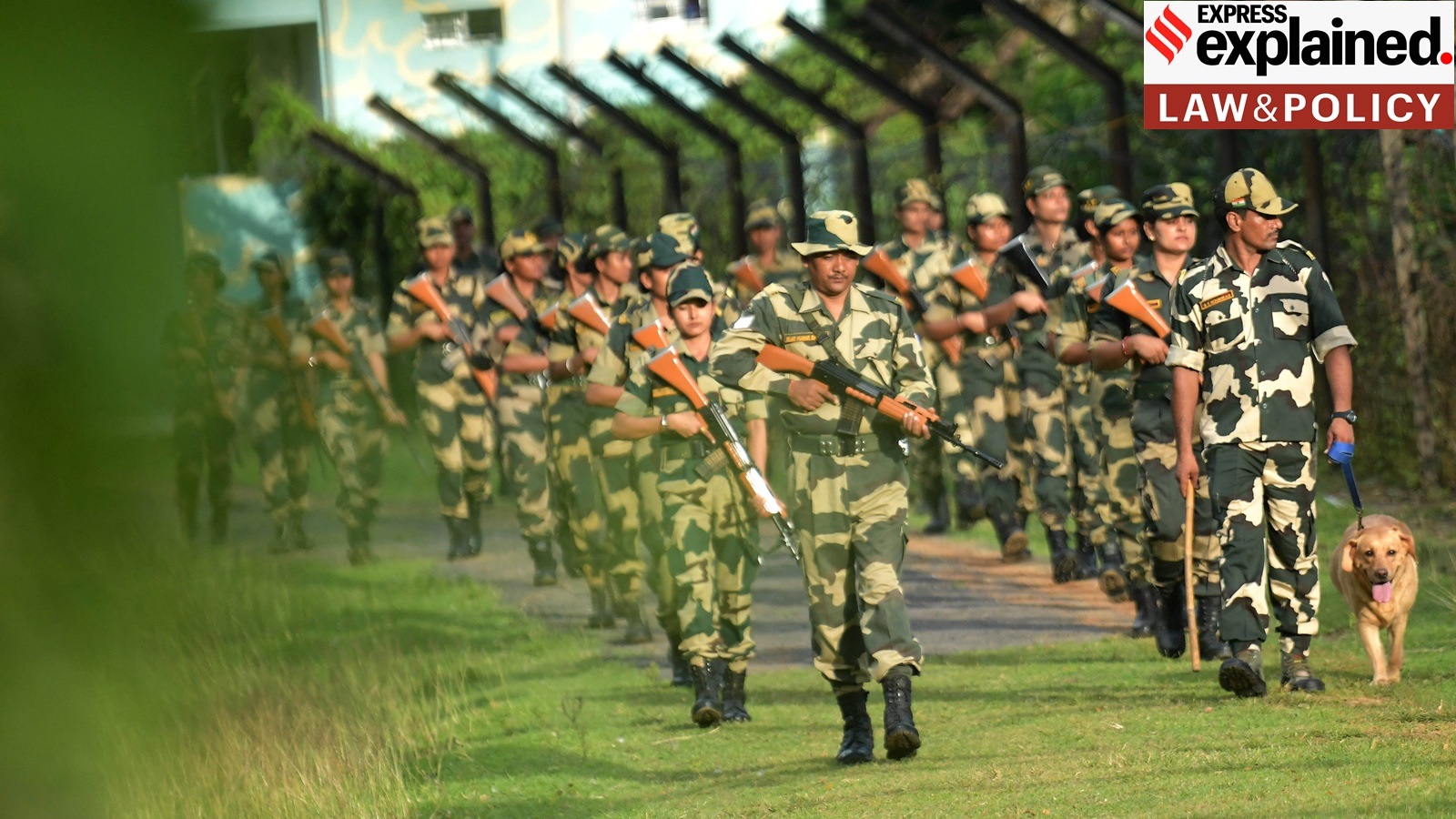Why Punjab govt moved Supreme Court against the expansion of BSF jurisdiction
Why was the BSF jurisdiction expanded? Which other states are impacted, and why has only Punjab moved court? What issues will the SC decide?
 The BSF is meant to secure India’s borders and is empowered to arrest, search and seize under a number of laws. (Picture for representation: Express Archive)
The BSF is meant to secure India’s borders and is empowered to arrest, search and seize under a number of laws. (Picture for representation: Express Archive)The Supreme Court is set to hear the dispute over the expansion of the Border Security Force (BSF) jurisdiction in Punjab. Final hearings in this case will commence next week.
On October 11, 2021, the Ministry of Home Affairs issued a notification expanding the jurisdiction of the BSF in Punjab, West Bengal and Assam. This was challenged by the Punjab government the following December.
Why was the BSF jurisdiction extended?
The BSF was created after the enactment of the Border Security Force Act in September 1968. The BSF is meant to secure India’s borders with its neighbouring nations and is empowered to arrest, search and seize under a number of laws, such as the Criminal Procedure Code, the Passports Act, the Passport (Entry into India) Act, and the NDPS Act, to name a few.
Section 139(1) of the BSF Act allows the central government, through an order, to designate an area “within the local limits of such area adjoining the borders of India” where members of the BSF can exercise powers to prevent offenses under any Acts that the central government may specify.
Prior to the notification issued in October 2021, the BSF could exercise its powers within 15 kilometres of the border in Punjab, West Bengal and Assam. The Centre expanded this to within 50 kilometres of the border.
The notification states that, within this larger 50-kilometre jurisdiction, the BSF can only exercise powers under the Criminal Procedure Code, the Passport (Entry into India) Act and the Passports Act. For other central legislations, the 15-km limit remains.
On December 7, 2021, the Minister of State for Home Affairs Nityanand Rai clarified in writing that this expansion was in response to the increased use of drones and Unmanned Aerial Vehicles, which have long-range capabilities and enable surveillance and the smuggling of arms and fake currency. He also highlighted the ‘menace of cattle smuggling’ and pointed out that smugglers often seek refuge outside BSF jurisdiction.
Solicitor General Tushar Mehta also claimed that the notification makes the BSF jurisdiction uniform across states, as the 50-kilometre limit was already in place in Rajasthan. The same notification reducted the jurisdiction in Gujarat from 80 km to 50 km.
Why has Punjab challenged this?
The state of Punjab filed an ‘original suit’ against the central government in the Supreme Court in December 2021. The Supreme Court has ‘original jurisdiction’ in disputes between the central government and states under Article 131 of the Constitution, which means cases of this kind can only be heard for the first time at the SC “to the exclusion of any other court”.
The Punjab government claimed that expanding the jurisdiction of the BSF would compromise the state’s exclusive powers to legislate on matters involving the police and public order. These powers are provided in Entries 1 and 2 of the State List under Article 246 of the Constitution. They also claimed that the notification was issued without consulting with any of the states concerned. Shortly after the notification was released, the then Chief Minister of Punjab Charanjit Singh Channi called it “a direct attack on federalism”.
Arguing before the SC in December 2023, Additional Advocate General for the state of Punjab, Shadan Farasat, claimed that in Punjab, a large number of cities and towns would fall within this 50-kilometre jurisdiction, whereas in Gujarat and Rajasthan, most areas along the international border are sparsely populated, primarily containing marshlands or deserts.
Have other states joined the challenge?
Currently, no other challenge is tagged with the Punjab government’s, though the notification was met with pushback from West Bengal when it was released. Shortly after the October 2021 notification, the West Bengal Assembly had passed a resolution demanding its withdrawal.
What are the issues that the SC will consider?
The court will decide if the notification expanding the jurisdiction of the BSF was arbitrary or backed by legitimate reasons. Further, the court will determine if this notification interferes with the powers of the local police and encroaches upon states powers under the Constitution.
The SC will also decide what factors have to be considered when deciding which areas are “within the local limits of such area adjoining the borders of India” and whether all states must be treated alike when determining these local limits. Finally, the court will decide if the notification can be challenged through an original suit under Article 131 of the Constitution.
- 01
- 02
- 03
- 04
- 05






































